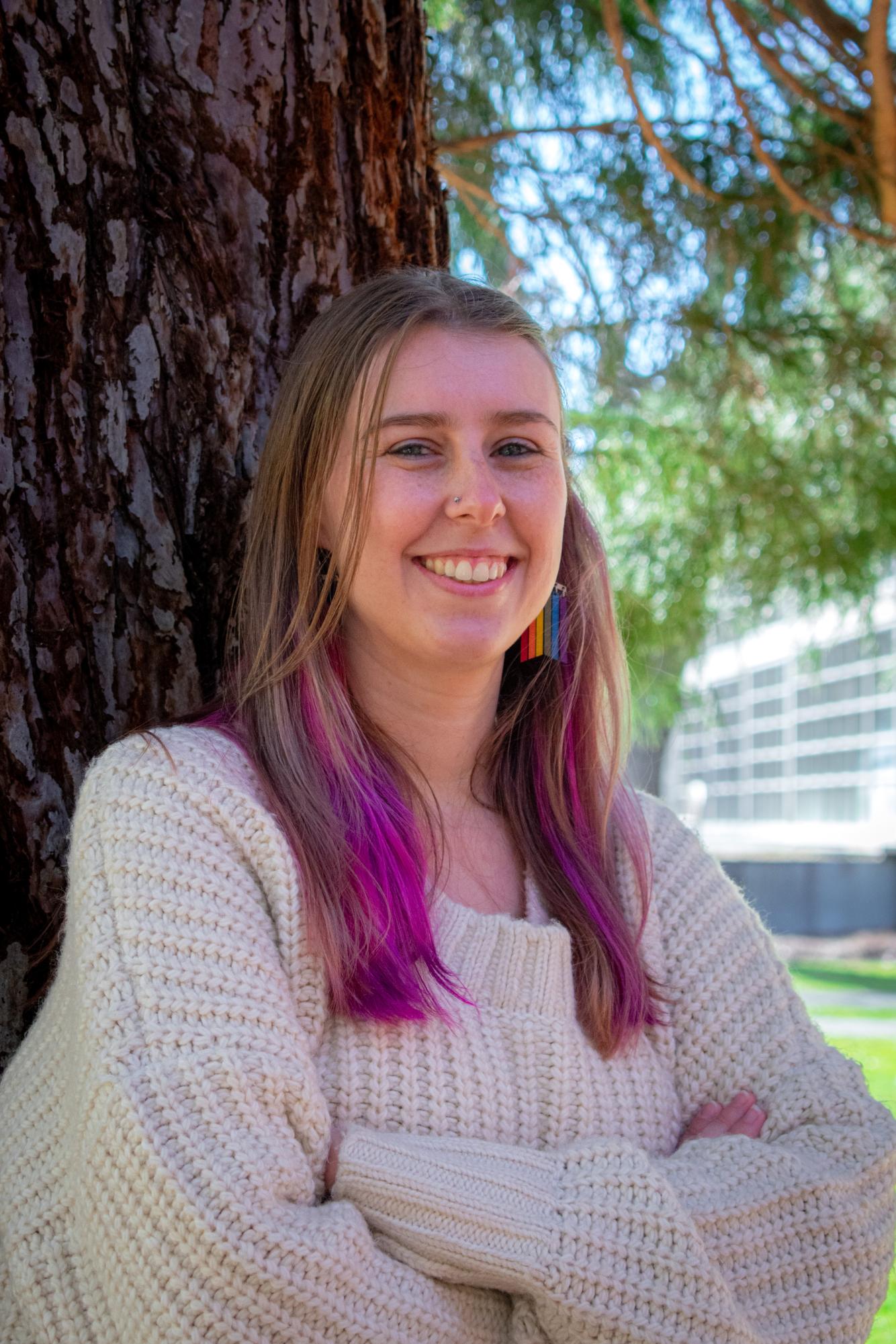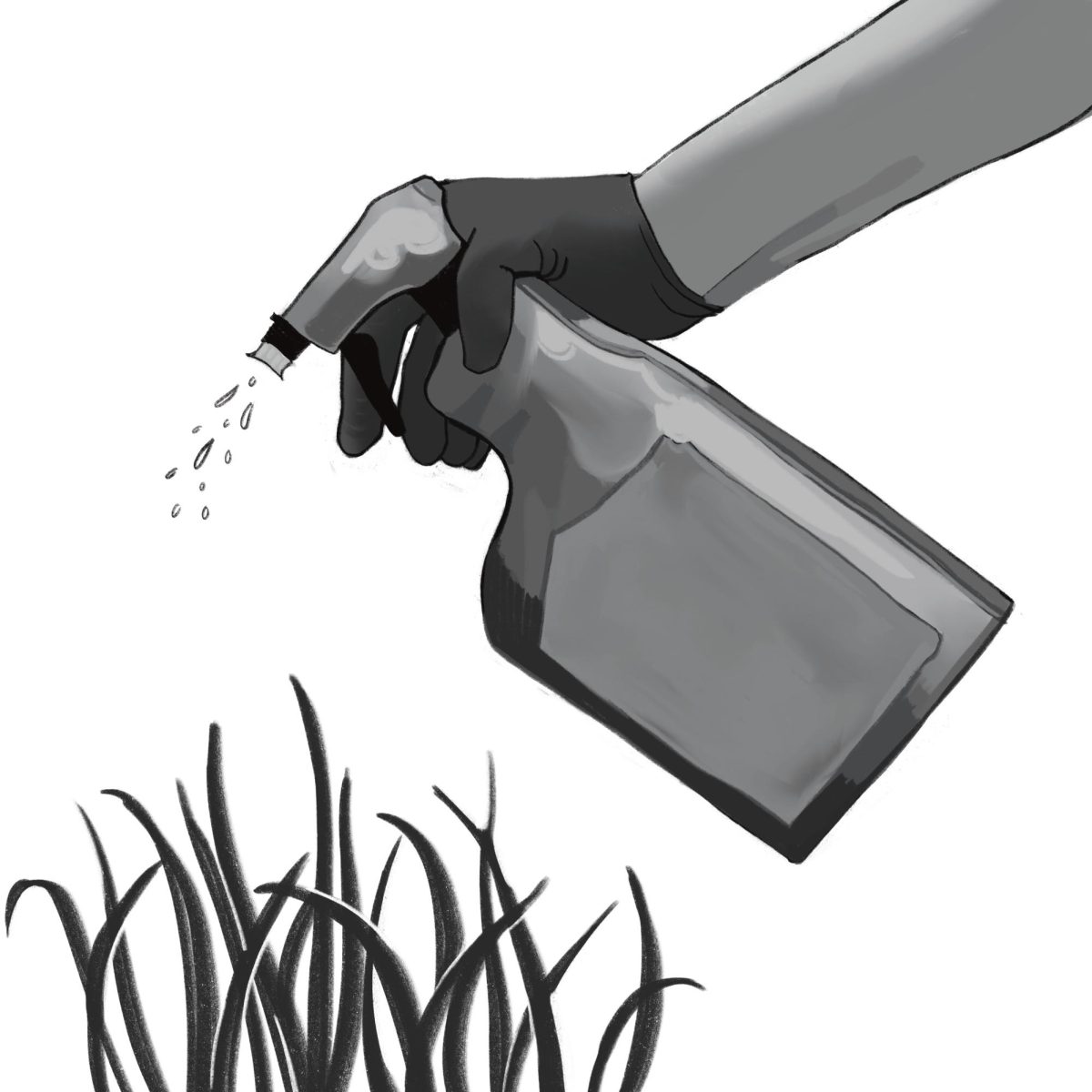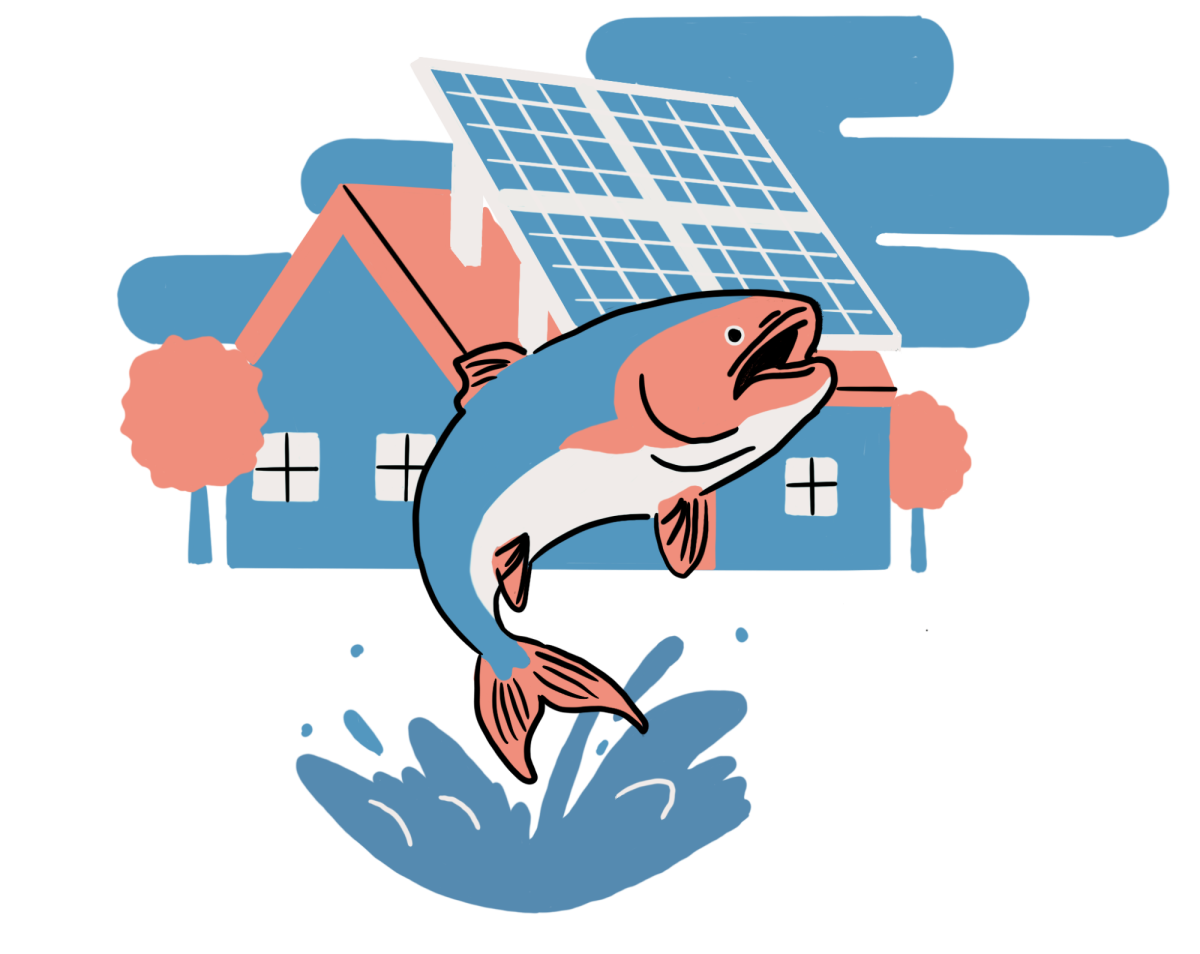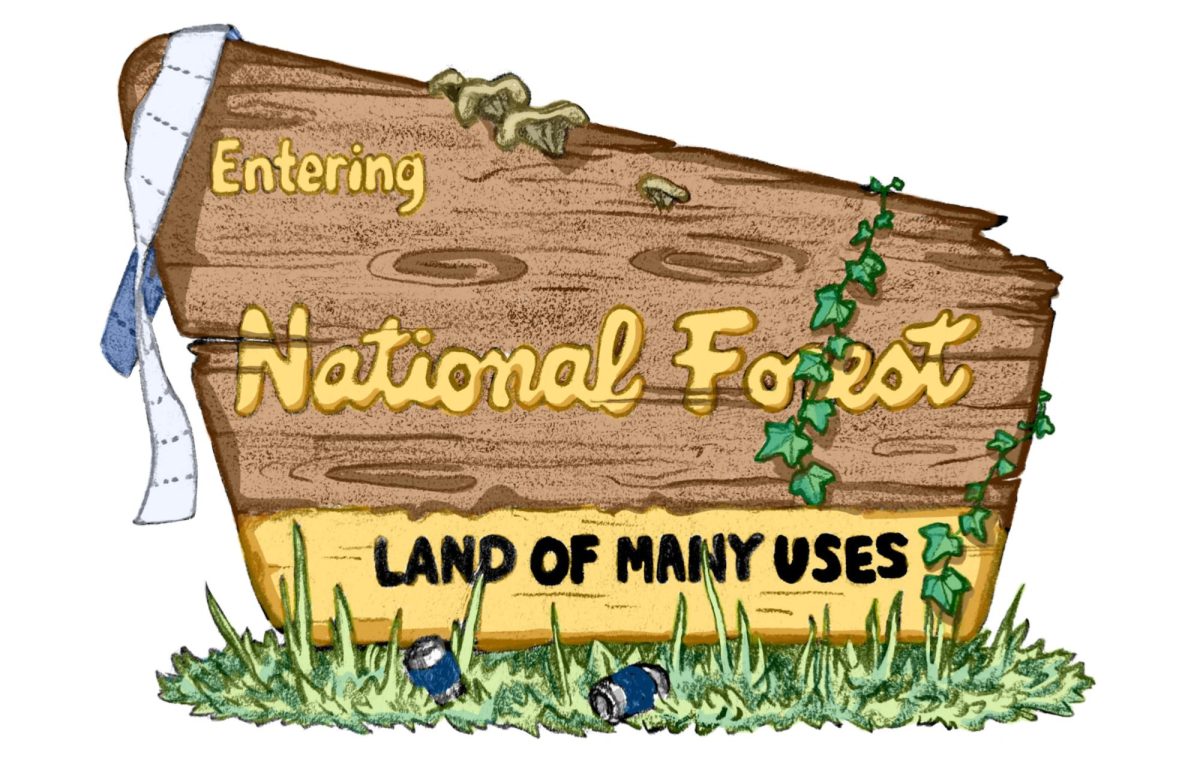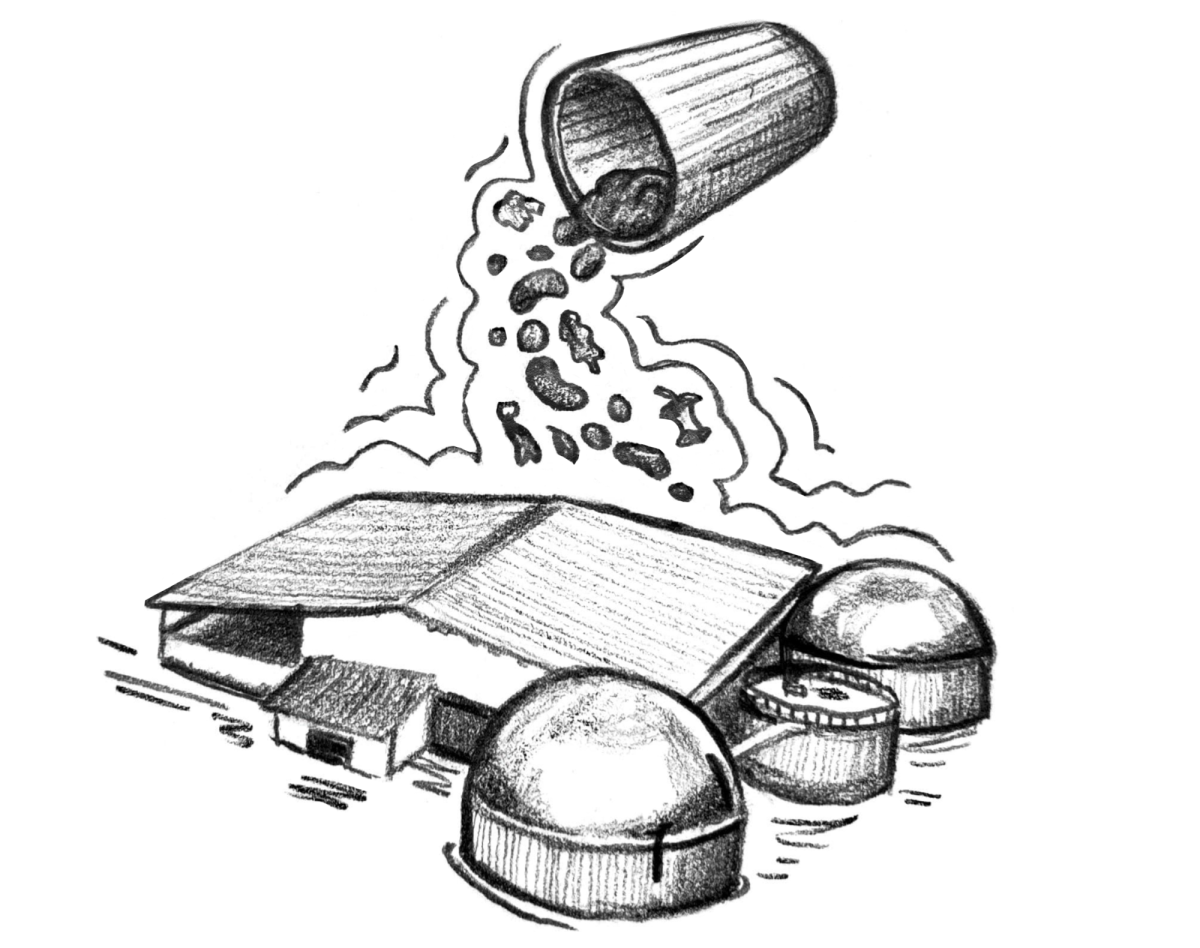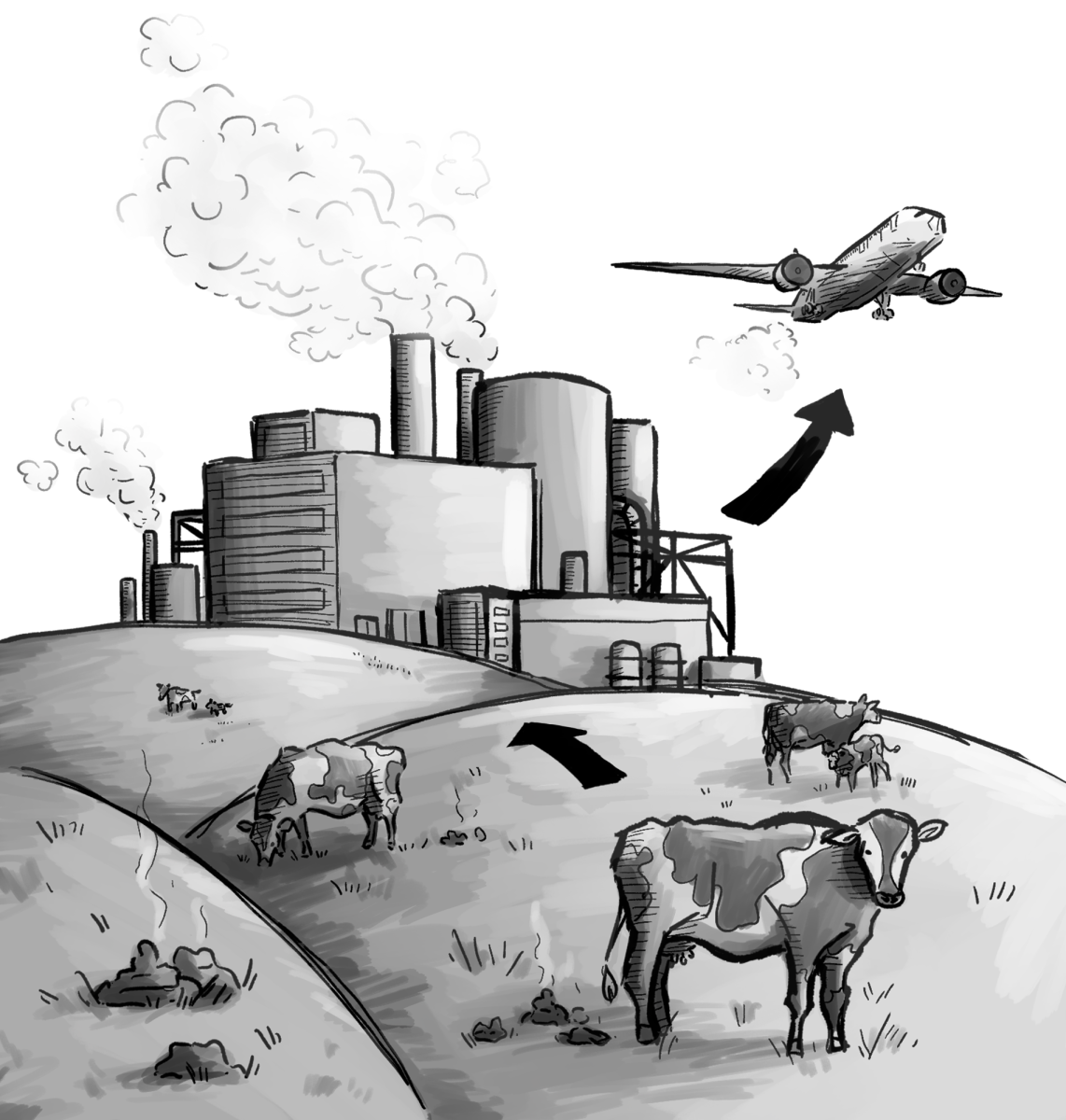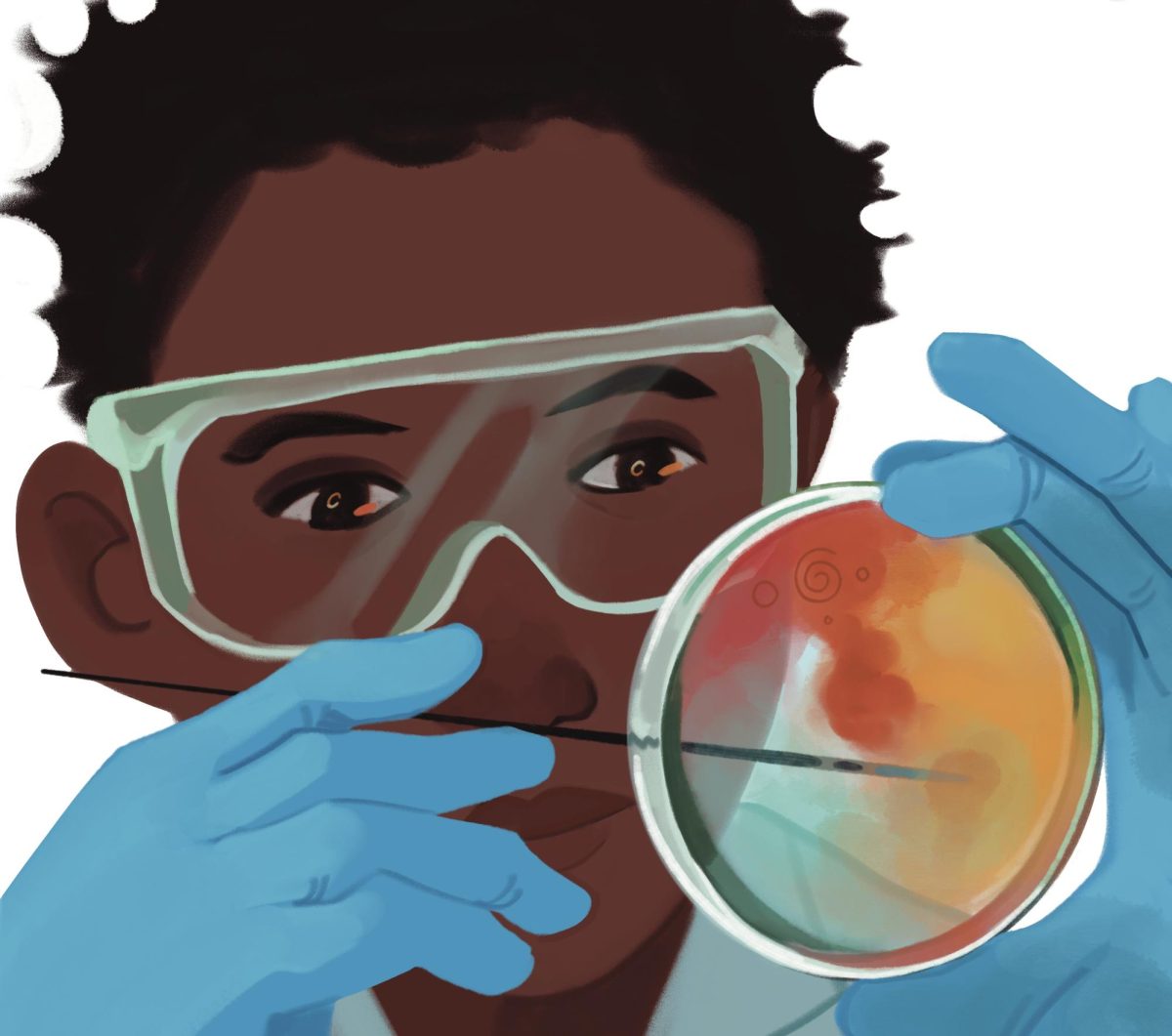Native plant restoration, coffee compost, bike policies and residence life talking sessions on sustainability all have one thing in common: Sarah Williams.
Sarah Williams joined Whitman College as its Sustainability Manager in December 2022. In the time she’s been in Walla Walla, Williams has undertaken countless projects and initiatives aimed at increasing environmental awareness and improving sustainability in the College community. In addition to her role on campus organizing students, events and long-term strategy, Williams is also currently pursuing a master’s degree in Sustainable Food Systems and Policy from Arizona State University.
Wire: Would you like to introduce yourself? Who are you, what your job is and how you ended up at Whitman?
Sarah Williams: I grew up in rural Alabama, way down south. I’ve moved around a lot: I’ve lived in Texas. I’ve done a stint in Georgia, Phoenix, Arizona and most recently, Tallahassee, Florida. I moved around a lot because my wife was in the Air Force for 10 years.
I didn’t really do traditional college right out of high school. I took a seven year gap and then went to Arizona State University where I got a degree in sustainability and a certificate in sustainable food systems.
From there, I got a job with Aramark Food Services at Arizona State as a sustainability intern … I got to go back to ASU as their sustainability coordinator for Aramark.
Then my wife separated from the Air Force and we decided that Arizona was fine, [but thought it was time to] try something else.
I job-searched for a year and a half before I finally found this one at Whitman. It was so perfect: a nice small school with super dedicated students …. And I’ve always wanted to live in the Pacific Northwest.
I officially started on campus December of 2022.
Wire: Can you speak [about] what drew you to sustainability in the first place?
SW: It was about a year into an environmental engineering degree at Arizona State. I had wanted to do biomimicry, but it wasn’t offered as more than just a course. I thought environmental engineering was really similar: I wanted to be able to create sustainable things.
My biology professor started talking about plastic pollution and the garbage patch in the ocean and our future generations. It really spoke to me. I immediately went home, called my advisor and said I had to switch to something like straight sustainability.
I have a 10 year old, [and] at that point, he was two or three. I really do all of it for him.
I know it’s cliche to say, but I want him to have a very nice future growing up, and not to be concerned or worried about where he lives and what he’s going to do with the 30 years that we gave them on this planet.
Wire: Can you talk about what your ethos is in approaching sustainability and how you’ve been able to enact that and what sort of challenges you might have faced?
SW: The biggest thing for me when I think about sustainability projects, programs, problems, [is that] I’m always looking at it through an equity and efficiency kind of lens.
The thing that got me into my sustainable foods program is food security. That is a really big deal to me [after] growing up semi food insecure … [living] as a young mother on food stamps and WIC.
Access and equity to basic needs that we all deserve to have, like food, water, clean air, a dry place to sleep – that’s how I look at everything.
We all deserve the good things out of this and it is our job to preserve those good things and and continue to make sure that our children get to do those.
Wire: How is your role as Whitman’s sustainability manager different from the other roles you’ve held previously?
SW: My other roles were all specifically [about] food. All of my focus was composting, sustainable sourcing, ethical sourcing, having those green labels on our products. [Thinking about] how [to] get more plant-based foods in the dining halls. I was way more into programming and engagement activities and events.
I’m a lot more operational and administrative [at Whitman]. There’s just so much to do now because it’s much bigger than food.
It’s recycling. It’s decarbonization. It’s climate justice and it’s native ecology. It’s really fun to get to have a hand and kind of how all of this operates and and getting to see the interconnectedness that I didn’t really get to have in my previous roles because I was so siloed within food.
Wire: I understand there are some changes happening to our current campus sustainability policies. What are those changes looking like?
SW: Currently, [we have] the climate action plan that was made in 2016. It had a lot of really great, really awesome ideas, [but wasn’t] very practical for our college in the long run. What we’ve decided to do is turn that into an overarching campus sustainability plan.
It’s going to cover electricity. It’s going to cover all of our fuels, the fleet, our recycling, our waste minimization, our water usage, our landscaping techniques, how we combat climate emissions with all of our traveling, whether it’s study abroad or admissions recruiting.
It’s going to help shape how all of those different policies fall within it, one of them being the upcoming smoke and tobacco free policy that has been swirling around for a few years.
The things coming out of this campus sustainability plan and our AASHE STARS report help us to reshape and solidify some of the vagueness of these policies.
Wire: Can you talk about the kinds of initiatives you’ve taken on since you’ve been at Whitman? What’s the year in review?
SW: We’ve done a lot of policy updates. [A] bike policy update …we’re still currently trying to update our recycling policies. We were right in the middle of [revisions] when the city decided to add plastic back in. So we had to revisit very quickly, so it is undergoing a lot of new changes.
One of the newest things that we’ve brought is the EcoReps program. I currently have two students who are dedicated EcoReps right now. They do events within the residence halls.
We want to make sure that [students] are educated. Recycling, any of the native ecology restorations, the things that we’re going to be doing within our water metering and retrofits, they are there to do the educating.
I’m adding a climate data assistant to the department because I know there’s a lot of professors who are doing classes around [data]. I want to start working with them [and] have a student who is specifically doing a project with that professor, utilizing our actual real data from Whitman that’s climate-related.
The department has gotten really involved in a lot of collaboration with the Outhouse, native ecology club and the community garden.
We are piloting very small coffee composting programs. We have one within [the] facilities services building and another one within Memorial. We’re seeing how well that goes and if [it is] logical to [expand the program].
Wire: What are some challenges you’re facing when looking to make revisions to policy?
SW: I’d say the biggest challenge is just trying to find common ground [and] finding a nice compromise because a lot of policy is looked at by staff, faculty [and] students.
Of course, all of those groups are different … So the hardest part of that is making sure that you have everything in there you want.
[For example], you have students who are asking you to take plastic off campus and stop using plastic within vending machines. But, then you have students who really rely on vending machines and staff and faculty who probably never use it unless they’re here on the weekends.
It’s just trying to make something that’s going to make everyone happy. It’s almost not possible. That’s probably the most difficult part.
Wire: What ways have you been successful at finding compromise in situations like those?
SW: In these situations, I usually initially draft a thing and then have a bunch of people look at it … [We] get everyone together and you slowly revise it until most people are generally happy.
A lot of facilitation is very key. If you have a third party person to help you mediate through all these discussions, because they stay nonpartial, [it] helps you stay on task and not get too off track. They can help provide the other perspectives.
Wire: Is there something coming up that you’re most excited for?
SW: We have started talking about doing a sustainability showcase in Earth Month (April). It’s in the very early planning stages, but I’ve been reaching out to all the sustainability groups I can think of on campus, and everyone emailed back and said, “We’re totally in.”
It’s going to be very similar to Bring the Outside In, but I’m hoping to bring in more community members, really jam pack it and just make it sustainability [and] environmental focus.
Wire: What do you hope for the future of sustainability at Whitman?
SW: I hope for a bigger department that specifically has someone who can manage engagement opportunities … it’s really hard for me to be able to [be as involved in] all of those. A sustainability engagement coordinator would be really cool to have.
I would love to see the EcoReps program be expanded to where every residence hall has about one to two.
I want to see sustainability education. We have a really expansive environmental studies program, but I would love to see things more geared towards sustainability transitions, sustainability leadership [and] sustainability challenges.
I think we’re getting there, but I would love to see that as its own.
The biggest thing that we’re all trying to do is decarbonization. I’d love to see us be able to get rid of natural gas and move ourselves over to steam or ground source heat pumps.
Wire: Is there anything else you’d like The Wire readers to know?
SW: The biggest thing I want to mention is the campus sustainability plan.
We are hosting a series of listening sessions [and] our consultants are coming in. GreenerU, who is helping us draft the majority of the plan are coming in. Then we have Cascadia Consulting – they are out of Seattle and they have specifically worked with the [Confederated Tribes of the Umatilla Indian Reservation] CTUIR before. They are helping us create this plan and look at it with a DEIA lens.
They’re going to be here in person in February to host listening sessions with students, staff, faculty, anyone and everyone who wants to come out. They’re going to get shown some snippets from the plan goals … and [we’re] asking for community feedback.
Upcoming feedback sessions for the Campus Sustainability Plan will be held on Feb. 20 and 21. Morning sessions are geared towards staff and faculty, and afternoon sessions are intended for students of various backgrounds. Williams also invites the campus community to answer a public survey before Feb. 16.


